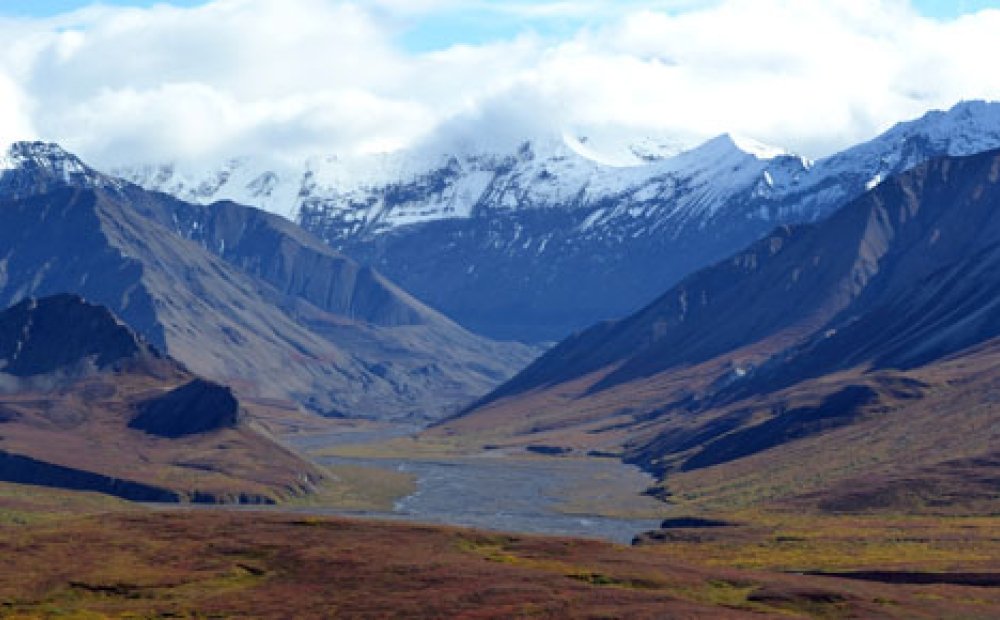Managing Mountains for Ecological Services and Environmental Security

High mountain regions face grave environmental challenges with climate change impacts already as severe as any place on earth. Glaciers and snowfields are retreating in many areas, increasing risks of catastrophic Glacial Lake Outburst Floods, but also affecting fresh water supplies for hundreds of millions of people downstream. Conservative predictions suggest two- to threefold greater temperature increases at high altitudes than at sea level, endangering alpine ecosystems and the environmental services they provide. Mountain ecological systems and rural communities are further subject to an onslaught of poorly planned development and other socioeconomic pressures. Poverty is chronic, forests and fragile alpine habitats are being degraded, and species are being lost. Finally, the harsh realities of geography and isolation have led to mountain regions being at the epicenters of fully half of current wars, insurgencies, and civil unrest globally.
Despite burgeoning threats, the global response has been piece meal at best with governments and people worldwide insufficiently aware of the benefits that these geographies provide. Mountain ranges as natural water towers are important for lower elevation ecosystems, irrigation, industry, hydropower, and freshwater for as much as half of humanity. They provide other irreplaceable ecological services such as carbon sequestration and climate regulation, and harbor exceptional biological diversity. High altitude regions are often rich in natural resources, and are key to food security for some of the planet’s poorest communities. Further, mountains figure large in human history and contain rich indigenous cultures, over a thousand languages, and innumerable culturally important sites, many of which are at risk.
Addressing the challenges that mountain regions face will require specific approaches that are both broad and systemic in scale. All too often the geographic isolation of highlands, and the weight of human population, have pulled attention elsewhere – ignoring consequences for environmental services and security. A new and encompassing vision for conservation and development of these regions is needed. This must be grounded in science, but also more and better integration of local peoples, to improve practice and policy. Increasing local to global awareness of the benefits that mountains provide, and the challenges these systems face, is key. Tough trade-offs and contested issues will need addressing, such as conserving riverine integrity versus building dams to sustain seasonal water flow as snowfields retreat, agroforestry with exotic species versus improved rangeland management, and building roads to impoverished communities versus promoting more environmentally benign trekking and cultural tourism. Changing aspirations of once-isolated mountain communities will need foresight as economic opportunities drive change and migration with implications for gender, the youth, the elderly, and indigenous peoples.
The panel will provide an overview of the challenges, issues, and solutions to inform a rich discussion with active audience participation. Panelists include representatives from the development and conservation practitioner, donor, environmental media, and policy analysis communities. The event will be webcast live and available on-line afterwards. We will start with 4 presentations followed by an open dialog for approximately1 hour.
Photo courtesy of blmiers2
Speakers


Visiting Scholar, Environmental Law Institute; Research Associate, Columbia University Business School’s Center for Decision Sciences
Hosted By

Brazil Institute
The Brazil Institute—the only country-specific policy institution focused on Brazil in Washington—aims to deepen understanding of Brazil’s complex landscape and strengthen relations between Brazilian and US institutions across all sectors. Read more


Environmental Change and Security Program
The Environmental Change and Security Program (ECSP) explores the connections between environmental change, health, and population dynamics and their links to conflict, human insecurity, and foreign policy. Read more


Global Risk and Resilience Program
The Global Risk and Resilience Program (GRRP) seeks to support the development of inclusive, resilient networks in local communities facing global change. By providing a platform for sharing lessons, mapping knowledge, and linking people and ideas, GRRP and its affiliated programs empower policymakers, practitioners, and community members to participate in the global dialogue on sustainability and resilience. Empowered communities are better able to develop flexible, diverse, and equitable networks of resilience that can improve their health, preserve their natural resources, and build peace between people in a changing world. Read more
